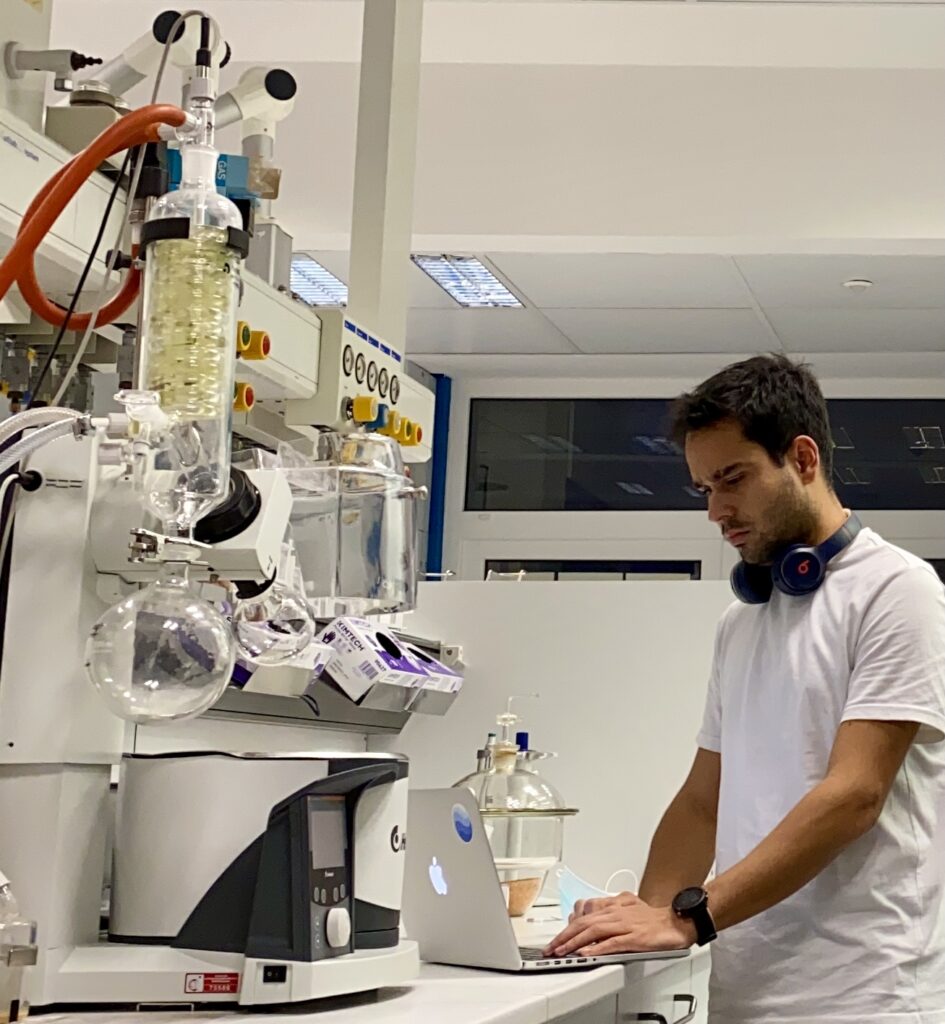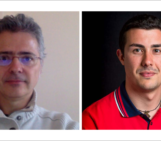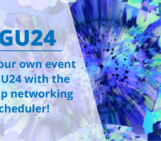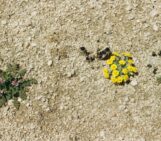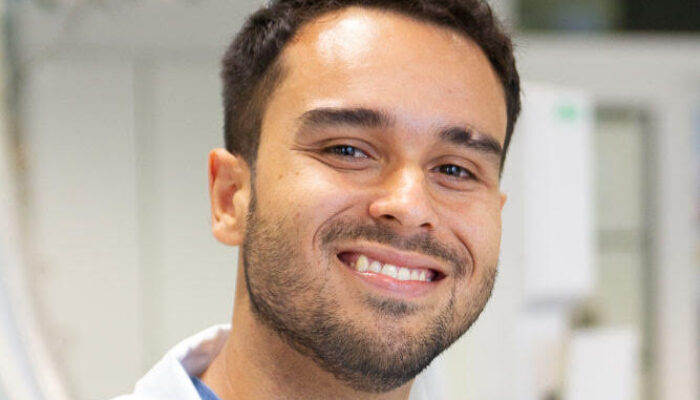
‘What I wish someone told me early in my career’ is a new Geolog series that aims to provide valuable insights and guidance to early-career professionals within the European Geosciences Union (EGU) community. Each month, I will interview a staff member of EGU to share their personal career journey, experiences, challenges faced, and the tips they wish they had received earlier in their careers. This month, I am having a chat with our Editorial Manager, Eduardo Queiroz Alves (He/Him). Eduardo joined EGU in March 2023 as the Editorial Manager, and has since then been working with the executive editors of our journals and coordinating the preprint repository and interactive community platform, EGUsphere. Let’s get to know him!
Hey Eduardo! I appreciate you joining me today for this interview. I am curious to know, what inspired you to become an editorial manager, and what key experiences led you to this role at EGU?
Hey Asmae and thanks for having me today! Good starting question too! I believe there are two key factors that led me to my current role: my passion for science communication and dissemination, and my desire to explore different roles in academic research. After finishing my undergraduate and master’s degrees in Brazil, I moved to the UK to pursue a PhD. This was an excellent opportunity to improve my English language skills, which also empowered me to start venturing into science outreach.
Throughout my career, I have been extremely lucky to have mentors who encouraged me to contribute to scientific studies and co-author publications. When I saw the EGU job advertisement, I remember thinking that this would be the perfect opportunity to support the open access dissemination of scientific research, while acquiring completely new experiences. I haven’t been disappointed, and it has been a rewarding journey.
What surprised you most about working in scientific publishing, especially in an organization like EGU that promotes open science?
I was particularly impressed by EGU’s publishing model. EGU has championed a transparent and interactive peer review model for over two decades! The review process in our journals invites the scientific community to actively participate in the interactive discussion of manuscripts. Peer review reports and community comments are made publicly available, assigned DOIs, and are citable. This level of transparency is still very unusual in the publishing world.
What are the biggest challenges you face in maintaining high scientific standards and open-access practices?
One of the biggest challenges in academic publishing today is the shortage of qualified researchers willing to review manuscripts. It often takes multiple rounds of invitations until we can find enough reviewers for a manuscript. However, we have been actively addressing this issue through initiatives such as peer review training and the co-review scheme, for example.
Currently, there is also significant discussion on the role of Artificial Intelligence tools in scientific publishing. These tools offer potential advantages, such as automating certain processes, but also raise concerns, including their potential misuse for fraud. At EGU, we are following the developments in this area and promoting important conversations on the topic. For instance, we hosted a Great Debate on this topic during the 2023 EGU General Assembly.
If you could give one piece of advice to someone starting out in editorial management, what would it be?
Consider the human side of the publishing process. It is important to be effective and streamline workflows, but don’t forget that you are working with reviewers and editors who volunteer their time to support the publishing ecosystem. Building strong, respectful relationships with them is essential.
What skills do you think are most essential for success in a role like yours?
Communication skills are key for engaging with diverse stakeholders such as editors, authors, and referees. Organizational skills are also important for managing multiple tasks and meeting deadlines. Besides that, attention to detail and problem-solving skills also help.
Has there been any advice or wisdom you received early in your career that still guides you today?
I think that in every role, a challenge or a mistake represent an opportunity to learn and grow. Thinking back over my career so far, and times when I was very stressed about things, I’d say the advice I’d give my younger self is don’t worry too much, it all works out ok one way or another.
What are some unique aspects of working at EGU that differ from other editorial or publishing roles?
I think the publishing model itself is unique. Our main values are captured by our slogan “EGU publications: transparent, community-driven, not for profit”. I enjoy working with our publisher, Copernicus Publications, and the great community of volunteer experts supporting our journals, all focused on publishing high-quality science without thinking about profit. I think this creates a very inspiring environment; it gives you a sense of purpose in what you are doing.
Earlier this year, I presented a poster about our publishing model in a conference with several other publishers. During the event, someone asked how long I had been working with EGU. When I mentioned it had only been a year, they mentioned how exciting it must be to start a career in publishing with such a unique and interesting model.
Can you share a moment or project you’re particularly proud of since joining EGU?
The EGU peer review training is a project I am particularly proud of. It is very fulfilling to help create a new generation of reviewers through hands-on, interactive training. We have successfully delivered this training twice, in 2023 and 2024, and the positive feedback we received each time has been very rewarding. Knowing that I am contributing to improving the peer review process of manuscripts in the earth, planetary and space sciences fields means a lot to me.
How do you see the future of open-access scientific publishing evolving, and what role do you hope EGU will play in that?
Publishing in general is going through a technological revolution with the advent of Artificial Intelligence tools. I want us to embrace new technologies, but to stay true to our core values, i.e., prioritizing quality, transparency, and ethical publishing practices. I also hope we continue to value inclusivity in open access publishing by adopting inclusive APC schemes that support underrepresented communities in having their research published. Open science is more than just free access to research papers; it’s about ensuring everyone has the right to participate in the scientific discourse.
How do you approach fostering growth for both individual journals and the EGUsphere preprint server?
I think a big part of that is the clear communication of our values and what sets us apart from other publishers. I am currently leading a task force for the promotion of our publications, and one of our aims is to plan strategies for promotion during the General Assembly. Ultimately, we want to stay connected with our community by making sure that our publishing model addresses its needs and interests.
What would you consider the most rewarding part of your role as editorial manager?
This is an easy question. The most rewarding part of my role is definitely providing important services to our community. It is always very fulfilling when people find the webinars, training sessions, and blogs we offer useful. Creating useful resources that help the community in the publishing process is one of my main goals in my role.
Are there any common misconceptions about editorial management that you’d like to clarify?
It is not an editorial role like the name may suggest. People often ask me how it is to be an editor and I have to clarify that I don’t make editorial decisions. Instead, my role involves working closely with our publisher, editorial boards, and publications committee to support and streamline the publishing process.
What new skills have you had to develop since joining EGU, and how have they impacted your approach?
Since joining EGU, I’ve had the opportunity to develop several skills required for my role. I have definitely become more confident in proposing new ideas and sharing them with the team. I am now more proactive in driving initiatives and fostering collaboration.
Finally, what advice would you give your younger self about managing work-life balance in this field?
I would advise my younger self to prioritize personal time! I have been making an effort to keep my weekends free for personal projects and other commitments, something I wish I started doing sooner.

